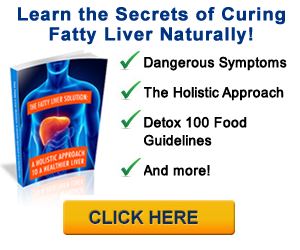Liver Health 101: Understanding The Basics
In “Liver Health 101: Understanding the Basics,” you will embark on a journey to discover the intricacies of the liver and its vital role in your overall well-being. From flushing out toxins to aiding in digestion, the liver is often overlooked, yet serves as a powerhouse for your body. By understanding the basics, you will be equipped with the knowledge to take better care of this essential organ and prioritize your liver health. So, join us as we uncover the mysteries of the liver and unlock the secrets to maintaining its optimal function.
The Importance of a Healthy Liver
Your liver is an incredibly important organ with numerous vital functions. It plays a crucial role in your overall health and well-being. Understanding the importance of a healthy liver is essential for maintaining optimal health.
Functions of the liver
The liver is involved in many important bodily functions. It acts as a filter, removing toxins and waste products from your blood. Additionally, it produces bile to aid in digestion and helps break down fats, proteins, and carbohydrates. The liver also stores essential nutrients such as vitamins and minerals, and supports the immune system by producing immune factors.
Signs of a healthy liver
A healthy liver is essential for your body to function properly. While there are no specific visible signs that indicate a healthy liver, there are some key indicators to look out for. These include having a good appetite, maintaining a healthy weight, having clear and glowing skin, and feeling energized and mentally sharp. If you experience these signs, it is likely that your liver is functioning well.
Common Liver-related Conditions and Diseases
Liver-related conditions and diseases can have a significant impact on your health. It is important to be aware of these conditions and their symptoms in order to seek prompt medical attention if needed.
Hepatitis
Hepatitis is a viral infection that causes inflammation of the liver. It can be caused by different viruses, including hepatitis A, B, and C. Common symptoms of hepatitis include fatigue, jaundice (yellowing of the skin and eyes), dark urine, and abdominal pain. It is important to get vaccinated for hepatitis and practice safe sex to reduce the risk of contracting the virus.
Cirrhosis
Cirrhosis is a late stage of scarring of the liver, caused by many forms of liver diseases and conditions, such as hepatitis and chronic alcoholism. It is a serious condition that can lead to liver failure. Symptoms of cirrhosis may include fatigue, easy bruising and bleeding, jaundice, and swelling in the legs and abdomen.
Steatosis (Fatty Liver)
Steatosis, also known as fatty liver disease, is a condition characterized by the accumulation of fat in the liver. It is often associated with obesity, poor diet, and excessive alcohol consumption. Fatty liver disease may not cause symptoms in its early stages, but it can progress to more severe conditions such as cirrhosis if left untreated.
Liver Cancer
Liver cancer occurs when abnormal cells in the liver grow and divide uncontrollably. It can be primary liver cancer, which starts in the liver, or secondary liver cancer, which spreads to the liver from other parts of the body. Common symptoms of liver cancer may include weight loss, abdominal pain, jaundice, and swelling in the abdomen. Early detection is crucial for successful treatment of liver cancer.
Causes and Risk Factors for Liver Problems
Understanding the causes and risk factors for liver problems can help you take proactive steps to prevent them.
Alcohol consumption
Excessive alcohol consumption is a leading cause of liver disease. Drinking alcohol in moderation is generally considered safe, but heavy, long-term alcohol use can lead to alcoholic hepatitis, cirrhosis, and liver cancer. It is important to limit alcohol consumption to protect your liver health.
Viral infections
Viral infections, such as hepatitis B and C, are major risk factors for liver problems. These viruses can be transmitted through contaminated blood, sexual contact, or from mother to child during childbirth. Getting vaccinated for hepatitis and practicing safe sex can help reduce the risk of viral infections.
Obesity and poor diet
Obesity and a poor diet high in unhealthy fats and sugars can contribute to the development of fatty liver disease and increase the risk of liver problems. Maintaining a healthy weight and eating a balanced diet rich in fruits, vegetables, whole grains, and lean proteins can help protect your liver.
Medications and toxins
Some medications, such as certain antibiotics and nonsteroidal anti-inflammatory drugs (NSAIDs), can cause liver damage if taken in high doses or for prolonged periods. Exposure to toxins, such as chemicals and pollutants, can also affect liver health. It is important to use medications responsibly and avoid exposure to harmful substances to protect your liver.
Understanding Liver Function Tests
Liver function tests are blood tests that measure various markers to assess your liver health and functioning.
ALT and AST levels
Alanine transaminase (ALT) and aspartate transaminase (AST) are enzymes that are normally found in liver cells. Elevated levels of these enzymes on a liver function test may indicate liver damage or inflammation.
Bilirubin levels
Bilirubin is a yellow pigment produced during the breakdown of red blood cells. Elevated levels of bilirubin in the blood can indicate liver disease or impaired bile flow.
Albumin and total protein levels
Albumin is a protein produced by the liver, and it plays a vital role in maintaining fluid balance in the body. Low levels of albumin and total protein in a liver function test may suggest liver disease or malnutrition.
Maintaining a Healthy Liver
Taking steps to maintain a healthy liver is essential for your overall well-being. Here are some important practices to incorporate into your daily life:
Eating a balanced diet
A balanced diet that includes plenty of fruits, vegetables, whole grains, and lean proteins can provide your liver with the nutrients it needs to function optimally. Avoiding processed foods, excessive sugar, and unhealthy fats is also important for liver health.
Limiting alcohol consumption
Excessive alcohol consumption can have a detrimental effect on your liver. It is important to drink alcohol in moderation and be mindful of the recommended limits to protect your liver.
Exercising regularly
Regular exercise not only helps maintain a healthy weight but also promotes good liver health. Physical activity can help reduce the risk of fatty liver disease and improve overall liver function.
Avoiding exposure to toxins
Minimizing exposure to toxins, such as chemicals, pollutants, and certain medications, can help protect your liver. It is important to follow safety guidelines and use protective measures when dealing with potentially harmful substances.
Natural Remedies to Support Liver Health
In addition to a healthy lifestyle, certain natural remedies have been traditionally used to support liver health. While these remedies may have some benefits, it is important to consult with a healthcare professional before starting any new treatments. Some commonly used natural remedies for liver health include:
Milk thistle
Milk thistle is a herbal supplement commonly used to support liver health. It contains a compound called silymarin, which has antioxidant and anti-inflammatory properties that may help protect liver cells from damage.
Turmeric
Turmeric, a spice commonly used in cooking, contains a compound called curcumin, which has been shown to have anti-inflammatory and antioxidant effects. It may help reduce inflammation in the liver and support overall liver health.
Dandelion root
Dandelion root is often used as a natural remedy to support liver health. It has diuretic properties that may help flush toxins from the liver and improve liver function.
Liver Detoxification: Fact or Fiction?
Liver detoxification is a popular concept, but it is important to understand the facts behind it.
Understanding the detoxification process
The liver is responsible for detoxifying and eliminating toxins from the body. It does this through a complex process involving enzymes that break down harmful substances. However, the idea that you can “detox” your liver through specific diets or products is not supported by scientific evidence.
Debunking common detox myths
Many detox diets and products claim to cleanse and rejuvenate the liver, but there is limited scientific evidence to support these claims. The liver is already highly efficient at detoxifying the body, and it is not necessary to follow strict detox regimens to support its function. Instead, focus on maintaining a healthy lifestyle and avoiding exposure to toxins.
When to Seek Medical Help
It is important to be aware of the signs of liver damage and seek medical help if you experience any of these symptoms:
Signs of liver damage
- Persistent fatigue
- Jaundice (yellowing of the skin and eyes)
- Abdominal pain or swelling
- Unexplained weight loss
- Dark urine
- Pale or bloody stools
- Nausea or vomiting
When to see a doctor
If you experience any of the signs of liver damage or have concerns about your liver health, it is important to consult with a healthcare professional. They can perform appropriate tests and provide guidance on managing and treating any potential liver problems.
Preventing Liver Disease
Prevention is key when it comes to liver disease. Here are some important steps you can take to reduce your risk:
Getting vaccinated
Getting vaccinated against hepatitis A and B can help protect you from these viral infections that can cause liver damage.
Practicing safe sex
Practicing safe sex and using barrier methods of contraception can help reduce the risk of contracting sexually transmitted viruses like hepatitis B and C.
Using caution with medications
Use medications responsibly and follow the instructions provided. Avoid self-medicating or taking medications in high doses or for prolonged periods without medical supervision.
Maintaining a healthy weight
Maintaining a healthy weight through a balanced diet and regular exercise can help reduce the risk of fatty liver disease and other obesity-related liver conditions.
Conclusion
Your liver is a vital organ that plays a crucial role in maintaining your overall health. By understanding the functions of the liver, common liver-related conditions, and the importance of maintaining a healthy liver, you can take proactive steps to protect your liver health. From adopting a balanced diet and limiting alcohol consumption to incorporating natural remedies and seeking medical help when needed, taking care of your liver should be a priority. Remember, prevention is key, and maintaining a healthy liver is essential for your overall well-being.

